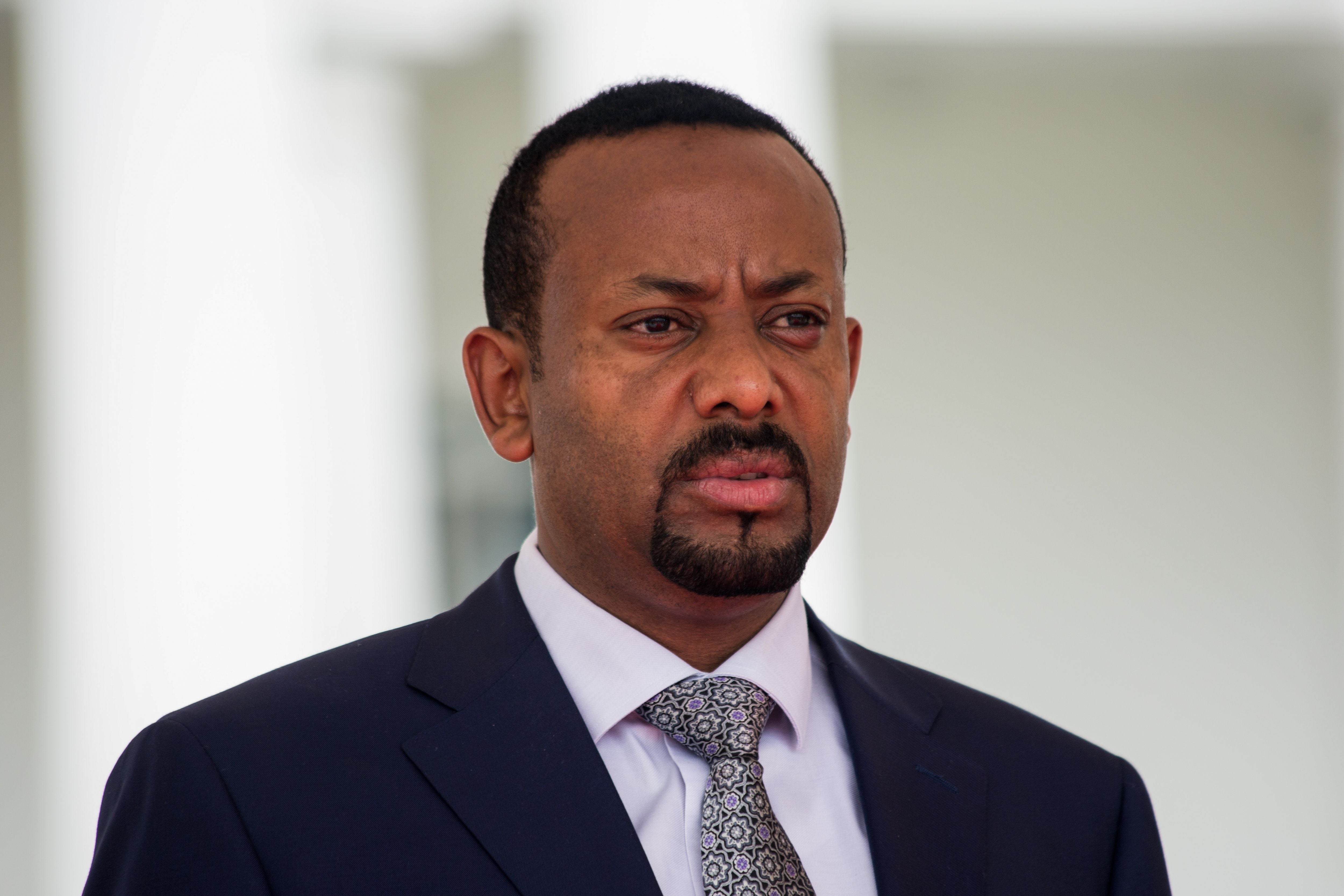Ethiopian leader says he will bury his foes ‘with our blood’ after one year of war
Ethiopian Prime Minister Abiy Ahmed was marking one year since the start of the war in the Tigray region one year ago

Your support helps us to tell the story
From reproductive rights to climate change to Big Tech, The Independent is on the ground when the story is developing. Whether it's investigating the financials of Elon Musk's pro-Trump PAC or producing our latest documentary, 'The A Word', which shines a light on the American women fighting for reproductive rights, we know how important it is to parse out the facts from the messaging.
At such a critical moment in US history, we need reporters on the ground. Your donation allows us to keep sending journalists to speak to both sides of the story.
The Independent is trusted by Americans across the entire political spectrum. And unlike many other quality news outlets, we choose not to lock Americans out of our reporting and analysis with paywalls. We believe quality journalism should be available to everyone, paid for by those who can afford it.
Your support makes all the difference.Ethiopian Prime Minister Abiy Ahmed on Wednesday pledged to bury his government’s enemies “with our blood” as he marked the start of the war in the Tigray region one year ago.
Mr Ahmed was speaking a day after a state of emergency was declared in the country and with Tigrayan forces threatening to to advance on the capital.
“The pit which is dug will be very deep, it will be where the enemy is buried, not where Ethiopia disintegrates,” he said in a speech at an event at the military’s headquarters in Addis Ababa.
“We will bury this enemy with our blood and bones and make the glory of Ethiopia high again,” the 2019 Nobel Peace Prize winner said.
A moment of silence was observed at the candle lit ceremony to commemorate those killed on 3 November 2020, when forces loyal to the Tigray People’s Liberation Front (TPLF) - including some soldiers - seized military bases in Tigray. In response, Mr Abiy sent more troops to the northern region.
The TPLF led Ethiopia’s ruling coalition for nearly 30 years but lost control when Mr Abiy took office in 2018 following years of anti-government protests.
Relations with the TPLF soured after they accused him of centralising power at the expense of Ethiopia’s regional states - an accusation Mr Abiy denies.
The conflict has killed thousands of people, forced more than two million more from their homes, and left 400,000 people in Tigray facing famine.
As fighting has spread into two other Ethiopian regions, it has also destabilised Africa’s second most populous nation, a country of more than 110 million people that was considered a stable western ally in a volatile region.
The government imposed a state of emergency on Monday with immediate effect.
The order came after the TPLF claimed to have captured several towns in recent days and said it might march on Addis Ababa, about 380 km (235 miles) to the south of their forward positions.
The six-month state of emergency enables the government to order citizens of age to undergo military training and accept military duty.
It also allows authorities to arbitrarily arrest anyone suspected of collaborating with “terrorist groups” with a court order and detain them for the duration of the state of emergency, according to the proclamation.
The government designated the TPLF a terrorist group in May.
After the state of emergency was announced, there were scattered reports of arrests of ethnic Tigrayans in the capital.
A woman at a private health clinic in the city told Reuters she had witnessed four doctors and one nurse, all ethnic Tigrayans, taken away by the police on Tuesday evening.
A resident told Reuters he saw police in the central Bole district randomly stopping people on the street and asking them to show their government IDs, which list ethnic identity.
“I saw three people arrested,” he said, speaking on condition of anonymity for fear of retribution.
The Addis Ababa police and a government spokesperson did not immediately respond to phone calls requesting comment.
A joint investigation by the United Nations and Ethiopia published on Wednesday found that all sides fighting in the war had committed violations that may amount to war crimes.
Also on Wednesday, Ethiopia’s sovereign dollar bond dropped to a record low on Wednesday after the US government said it planned to cut off the country from duty free access to the United States.
Reuters



Join our commenting forum
Join thought-provoking conversations, follow other Independent readers and see their replies
Comments